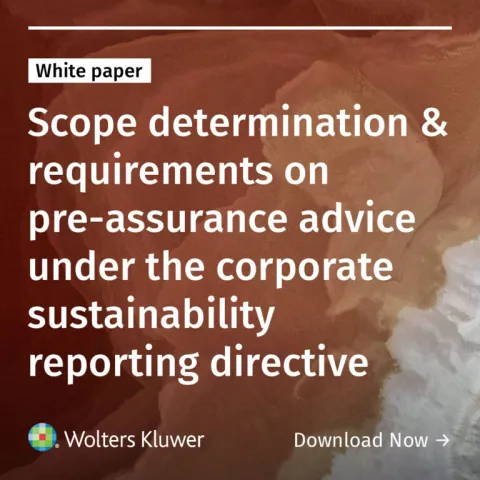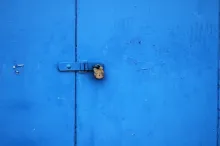The EPO and the Problem of the Right Speed (III) - Opposition Proceedings
April 6, 2017
Early certainty in opposition proceedings is clearly a desirable objective, and the President’s commitment to lowering the average duration of (normal) opposition proceedings to 15 months on the average deserves praise. In our experience, the new commitment has already started to result in that the summons to oral proceedings are issued sooner and that the hearings are scheduled on earlier dates than they used to be. This raise in the speed of opposition proceedings is a welcome development since it facilitates planning and helps to resolve the dispute between the parties expeditiously.
However, it must be emphasized that an overly strong focus on speed, rather than quality, is not in the interests of the parties to opposition proceedings. Quality should remain the top priority of the EPO in all of its proceedings.
In particular, I am of the opinion that the opposition divisions should be strongly encouraged by the EPO management to issue thorough decisions on all contentious issues, even if this may result in longer hearings and decisions in the first instance. The current practice is, unfortunately, mostly different. If, for example, an opposition division is of the view that the requests presented by the proprietor suffer from a problem under Art 123(2) EPC, it simply revokes the patent for this reason and completely abstains from issuing a decision on e.g. novelty and inventive step. Such a decision may well be an “early” one, but will not necessarily result in “certainty”. This is because if the Board of Appeal comes to a different conclusion on added matter and holds that the requirements of Art 123(2) EPC are fulfilled, it will remit the case to the opposition division for further prosecution. And this will cause another 5-6 years to pass before the case is finally resolved. Such kind of “early certainty” helps no one.
Thus, in view of the fact that the Boards of Appeal understand their role as a kind of administrative court and limit their review to checking the correctness of the first instance decision, a view which is supported by Enlarged Board of Appeal and the current Rules of Procedure, I think that the Opposition Divisions should do what they can to present the Boards of Appeal with a reviewable decision on all points in dispute, so that a case can normally be concluded in two instances without a remittal.
You may also like














Bianca ter Laan
Very often, if not most of the time, claims get changed before the BoA. That is mostly the reason that the first instance decision is set aside ( making me wonder why such changed claims were not filed before the first instance ). Giving a decision or opinion on the substance of claims that will cease to exist does not seem very efficient and it will most of the time not prevent remittal of the case.
Not indifferent
That oppositions should be dealt swiftly is certainly a positive development and can be approved. That quality should not been given up for the sake of expediency goes also without saying. But with the present production pressure, one should not put too much hopes in the matter. I must however disagree with Mr Bausch on one point. An opposition division cannot give a decision on all contentious issues which have been brought up by the opponents or the proprietor. If, for instance, there is a lack of sufficiency, then it is my humble opinion not possible to decide on novelty and inventive step. A technical teaching which is not enabling cannot be compared with an enabling prior art. The same goes for added subject-matter. If a claim contains added subject-matter, then the claim does not have an effective date. What is then the prior art which has to be taken into account? If a claim has an effective date, which is either the priority or the filing date, then a meaningful comparison with prior art can be made. This is not the case if a claim contains added subject-matter. Especially if the claim at stake is an independent claim. Then the proprietor is in an inescapable trap. The only case in which he can escape is if the independent claim is the result of an intermediate generalisation. There at pinch it should be possible to add in a section distinct for the actual decision what the position could be in case the intermediate generalisation would be removed. But this is an exception rather than the rule. I would go as far as to say that an opposition division would commit a substantial procedural violation if, in case of a lack of sufficiency and/or added subject-matter, the division would go through and decided as well on other aspects of patentability like novelty or inventive step. A ping-pong between the Board and the Opposition should be avoided. I have seen cases in which first an opposition division first decided that there was a lack of sufficiency, and revoked the patent. The Board disagreed and remitted for further prosecution. Then the patent was revoked again for added subject-matter, and once again remitted, in order to be revoked once again for lack of inventive step. This is certainly not correct, and could be avoided if the Boards of Appeal would make use of their competence under Art 111 in such situations and would then decide through. But this is another story. What is however to be wished is that the communication annexed to the summons deals with all contentious points. Rather than to make a summary of all the submissions of the parties, the division should really look thoroughly at the case and come up, whenever possible with a non-binding opinion on all contention points. This would certainly help, without binding the division, but if sufficiency or added subject matter is at stake the above difficulties remain. According to Point 8, third §, Notice from the EPO concerning the opposition procedure as from 1 July 2016, OJ 2016, A42, one could infer that a non-binding opinion of the opposition on the positions adopted by the parties is now mandatory. One should thus expect that it should go further than a mere listing of the points at stake. Stating that inventive step will be discussed when a ground of opposition is Art 100, a) and Art 56 is not helpful. It is stating the obvious and can be dispensed with. It will have to be seen if the quality of these communications improves or not. In view of the production pressure, one has to fear that this will not be case in spite of efforts of the examiners. Remittals will be unavoidable, but there again it is a different story. In view of the own production requirements of the Boards, one can only hope that they will not remit every time they think they can. Wait and see….
Not indifferent
Sorry dear Max Drei, neither an opposition division, nor a board of appeal is an English court. There is no cross examination or the like, and this is also not foreseen at the UPC. It is well known that you keep English courts in high esteem (I refer here to some reply of yours in IPKat), as that is even the reason why you think that UK should stay in the UPC, and adopt an English way of looking at things, but please do not confuse apples with pears. By the way, you did not comment on the exact reasons why I consider that dealing with the issues of sufficiency and added subject-matter cannot be mixed with novelty and inventive step. Here it is not question of a expressing a certain will or not, it is simply to end up with a logical analysis of the topics at stake. That an English court might be able to do so, is interesting to know, but beside the point. Part of the problem is that the boards of appeal are extremely unwilling to use to a full extent the powers conferred by Art 111, for whatever reason this might be. One reason could certainly be that a case remitted is a case more dealt with for the production statistic. This, once again, shows the immense stupidity to reduce the work of examining/opposition divisions as well as boards of appeal to simply a points producing machinery. This can only come from people who do not have a clue of the work involved in examining applications/patents and deciding on the correctness of first instance decisions. I do not know any country in which such intellectual work is counted like pees in a pod. But we have excellent managers looking after the health of the European patent system.....